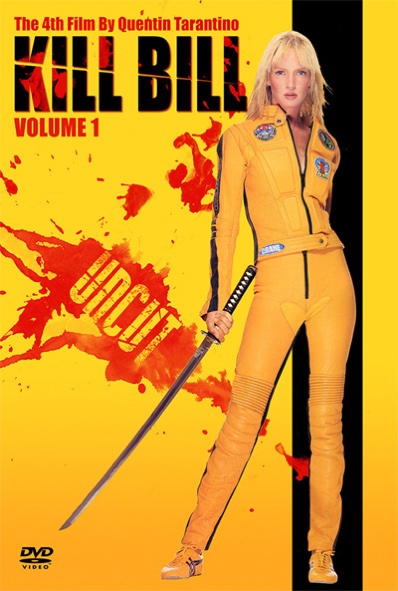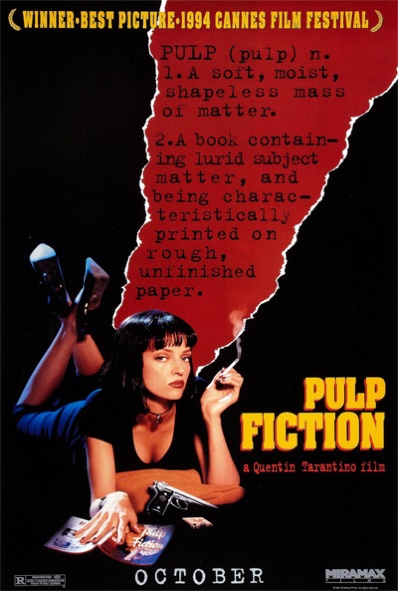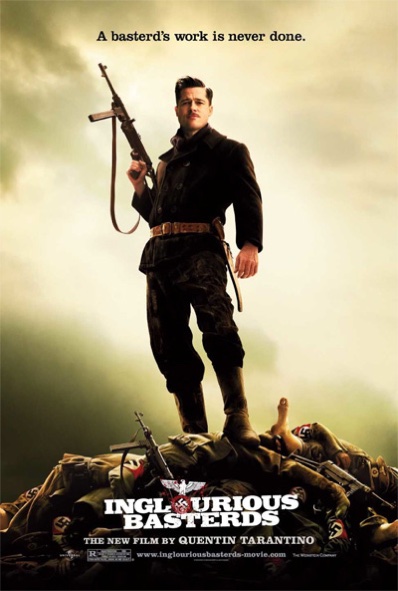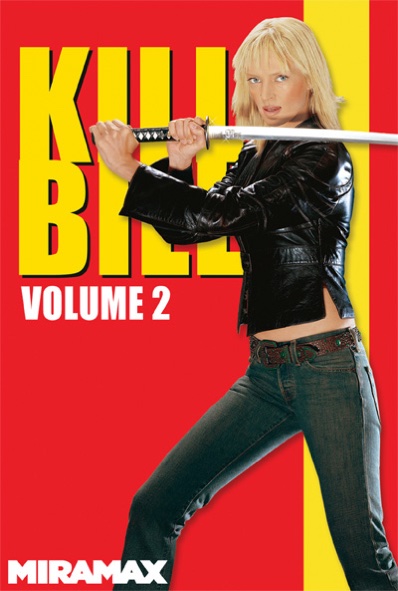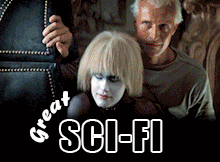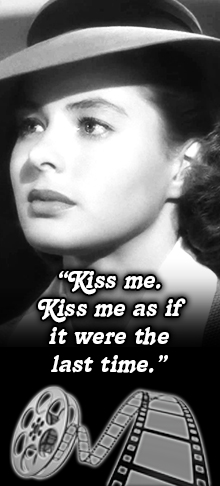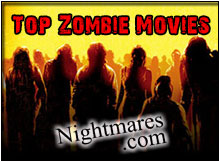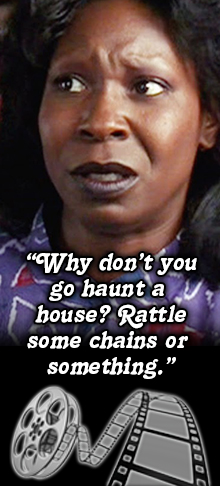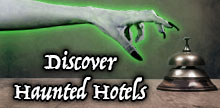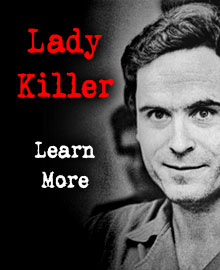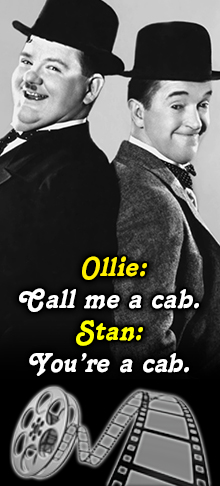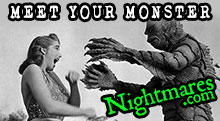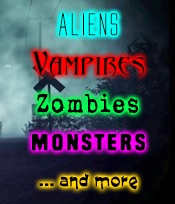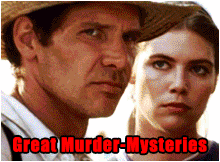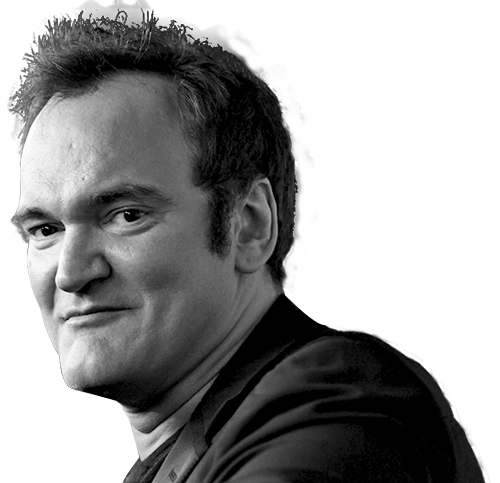
Quentin Tarantino
Best known for Pulp Fiction (1994) and the Kill Bill movies (2003-2004), Quentin Tarantino’s films are characterized by non-linear story structures, aestheticized violence, copious amounts of dialog (much of it obscene), and ensemble casts.
Quentin Jerome Tarantino was born on March 27, 1963 in Knoxville, Tennessee, the son of Connie McHugh and Tony Tarantino. He was named after Quint Asper, Burt Reynolds’ character in the CBS series Gunsmoke. Quentin’s mother met his father during a trip to Los Angeles, when Tony was a law student and would-be entertainer. She married him soon after, but the marriage did not last. In 1966, Tarantino’s mother, after finishing her nursing studies, moved back to Los Angeles with her then three-year-old son. They lived in the South Bay, in the southern part of the city. Tarantino grew up there.
Tarantino’s mother married musician Curtis Zastoupil soon after coming to Los Angeles, and the family moved to Torrance. Zastoupil encouraged his love of movies, and accompanied him to numerous film screenings. Tarantino’s mother allowed him to see movies with adult content, such as Carnal Knowledge (1971) and Deliverance (1972). After his mother divorced Zastoupil in 1973, and received a misdiagnosis of Hodgkin’s lymphoma, Tarantino was sent to live with his grandparents in Tennessee, where he remained for about six months to a year, before returning to California.
His mother’s next husband, to whom she was married for eight years, also took Tarantino to films. At 14 years old, Tarantino wrote one of his earliest works, a script called Captain Peachfuzz and the Anchovy Bandit, where a thief steals pizzas from a pizzeria. It was based on Hal Needham’s 1977 film Smokey and the Bandit, starring Burt Reynolds.
At about 15 or 16, Tarantino dropped out of Narbonne High School in Harbor City, and got an ushering job at a porn theater in Torrance, called the Pussycat Theatre, after lying about his age. Later, he put himself in acting classes at the James Best Theatre Company, where he met several people who would later appear in his films. While there, Tarantino also met Craig Hamann, with whom he collaborated to produce My Best Friend’s Birthday, an eventually-abandoned film project. In the 1980s, Tarantino worked in a number of places. He impersonated Elvis Presley in “Sophia’s Wedding: Part 1”, an episode in the fourth season of The Golden Girls. He also worked as a recruiter in the aerospace industry, and for five years, worked in Video Archives, a video store in Manhattan Beach. Former Buffy the Vampire Slayer actor Danny Strong described him as a “fantastic video store clerk.” “He was such a movie buff. He had so much knowledge of films that he would try to get people to watch really cool movies.”
After he met Lawrence Bender at a Hollywood party, Bender encouraged Tarantino to write a screenplay. He co-wrote and directed a movie called My Best Friend’s Birthday in 1987. The film’s final reel was almost totally destroyed in a lab fire during editing, but its screenplay would later form the basis for True Romance.
In January 1992, Tarantino’s neo-noir crime thriller Reservoir Dogs — which he wrote, directed and acted in as Mr. Brown — was screened at Sundance, where it was an immediate hit. The dialogue-heavy heist movie set the tone for Tarantino’s later work. Tarantino had written the script for it in three-and-a-half weeks and Bender forwarded it to director Monte Hellman. Hellman helped Tarantino secure funding for it. Harvey Keitel read the script and also contributed to the funding, taking a role as co-producer and also playing a major part in the film.
Tarantino’s screenplay True Romance was optioned and the film was eventually released in 1993. The second script Tarantino sold was for the film Natural Born Killers, which was revised by Dave Veloz, Richard Rutowski and director Oliver Stone. Tarantino was given story credit and in an interview wished the film well. It inspired enmity, and the publication of a ‘tell all’ book titled Killer Instinct by Jane Hamsher — who with Don Murphy had an original option on the screenplay and produced the film — led to Tarantino’s physically assaulting Murphy in a West Hollywood restaurant. Murphy filed a $5m lawsuit against Tarantino, which was eventually settled out of court. He was also an uncredited screenwriter on Crimson Tide (1995) and The Rock (1996).
Following the success of Reservoir Dogs, Tarantino was offered numerous projects, including Speed and Men in Black, but he instead traveled to Amsterdam to work on Pulp Fiction, which was released in 1994. Tarantino received an Academy Award for Best Original Screenplay, which he shared with Roger Avary, who contributed to the famously non-linear story. He also received a Best Director nomination. The film received another five nominations, including for Best Picture. Tarantino also won the Palme d’Or for the film at the Cannes Film Festival. Pulp Fiction has grossed over $200 million and won much critical acclaim.
After Pulp Fiction was completed, Tarantino directed the fourth segment of the anthology film Four Rooms, “The Man from Hollywood”, a tribute to the Alfred Hitchcock Presents episode “Man From the South”, which starred Steve McQueen in an adaptation of a Roald Dahl story. Four Rooms was a collaborative effort with filmmakers Allison Anders, Alexandre Rockwell and Robert Rodriguez. The film was very poorly received by critics.
Tarantino appeared in and wrote the script for Rodriguez’s From Dusk till Dawn (1996), which got only average reviews from critics but nevertheless achieved cult status, spawning two sequels, for which Tarantino and Rodriguez only served as executive producers, and a 2014 television series, From Dusk till Dawn: The Series.
Tarantino’s third feature film was Jackie Brown (1997), an adaptation of Elmore Leonard’s novel Rum Punch. An homage to blaxploitation films, it starred Pam Grier, who starred in many of the films of that genre in the 1970s. It received positive reviews and was considered by many a “comeback” for Grier and costar Robert Forster. Leonard considered Jackie Brown to be his favorite of the 26 different screen adaptations of his novels and short stories.
Tarantino had next planned to make Inglourious Basterds, but postponed it to write and direct Kill Bill, a highly stylized revenge flick. It was originally set for a single theatrical release, but its 4-hour plus running time prompted Tarantino to divide it into two movies. Volume 1 was released in late 2003 and Volume 2 was released in 2004. It was based on a character called The Bride and a plot that he and Kill Bill’s lead actress Uma Thurman had developed during the making of Pulp Fiction.
Tarantino’s next film project was Grindhouse, which he co-directed with Rodriguez. Released in theaters in April of 2007, Tarantino’s contribution to the Grindhouse project was titled Death Proof. It began as a take on 1970s slasher films, but evolved dramatically as the project unfolded. Ticket sales were low despite mostly positive reviews.
Tarantino’s film Inglourious Basterds, released in 2009, is the story of a group of Jewish-American guerrilla soldiers in Nazi-occupied France during World War II. The film opened in August 2009 to strongly positive reviews and reached the No. 1 spot at the box office worldwide. It went on to become Tarantino’s highest-grossing film until Django Unchained three years later.
In 2011, production began on Django Unchained, a film about the revenge of a slave in the U.S. South in 1858. The film stemmed from Tarantino’s desire to produce a spaghetti western set in America’s Deep South. Tarantino called the proposed style “a southern”, stating that he wanted “to do movies that deal with America’s horrible past with slavery and stuff but do them like spaghetti westerns, not like big issue movies. I want to do them like they’re genre films, but they deal with everything that America has never dealt with because it’s ashamed of it, and other countries don’t really deal with because they don’t feel they have the right to”.
In November 2013, Tarantino said he was working on a new film — another Western, not a sequel to Django, that was later revealed as The Hateful Eight. Production was originally set for the summer of 2014, but after the script leaked Tarantino considered dropping the project and publishing it as a novel. He stated that he’d given the script to a few trusted colleagues, including Bruce Dern, Tim Roth and Michael Madsen.
On April 19, 2014, Tarantino directed a live reading of the leaked script at the UA Theater in the Ace Hotel, in Los Angeles. The actors present included Samuel L. Jackson, Kurt Russell, Amber Tamblyn, James Parks, Walton Goggins, and the first three actors to be given the script before the leakage, Bruce Dern, Tim Roth and Michael Madsen. In October 2014, Jennifer Jason Leigh was in talks play the female lead in the film. On November 7, 2014, it was announced that Leigh, Channing Tatum, and Demián Bichir would join the cast. The film was released on Christmas day in 2015. The film has received mostly positive reviews.
Tarantino often uses graphic violence that has proven seductive to audiences, and he has been harshly criticized for his use of gore and blood in an entrancing yet repulsive fashion.
Actor Steve Buscemi has described Tarantino’s novel style of filmmaking as “bursting with energy” and “focused”, a style that has earned him many accolades. According to Tarantino, a hallmark of all his movies is that there is a different sense of humor in each one, which gets the audience to laugh at things that are not funny.
Tarantino has stated that the celebrated animation-action sequence in Kill Bill (2003) was inspired by the use of 2D animated sequences in actor Kamal Hassan’s Tamil film Aalavandhan. He often seeks to harness, manipulate and ultimately imitate the aesthetic elements and conventions typically used in cartoons. More specifically, he often attempts to meld comic strip formulas and aesthetics within a live action film sequence, in some cases by the literal use of cartoon or anime images.
Tarantino has stated in many interviews that his writing process is like writing a novel before formatting it into a script, saying that this creates the blueprint of the film and makes the film feel like literature. About his writing process he told website The Talks:
“My head is a sponge. I listen to what everyone says, I watch little idiosyncratic behavior, people tell me a joke and I remember it. People tell me an interesting story in their life and I remember it… when I go and write my new characters, my pen is like an antenna, it gets that information, and all of a sudden these characters come out more or less fully formed. I don’t write their dialogue, I get them talking to each other.”
Quentin Tarantino’s directing credits include…
| Year | Movie |
|---|---|
| 1987 | My Best Friend’s Birthday |
| 1992 | Reservoir Dogs |
| 1994 | Pulp Fiction |
| 1997 | Jackie Brown |
| 2003 | Kill Bill: Volume 1 |
| 2004 | Kill Bill: Volume 2 |
| 2007 | Death Proof |
| 2009 | Inglourious Basterds |
| 2011 | Kill Bill: The Whole Bloody Affair |
| 2012 | Django Unchained |
| 2015 | The Hateful Eight |
Memorable Quotes by Quentin Tarantino
“If I’ve made it a little easier for artists to work in violence, great! I’ve accomplished something.”
“Movies are my religion and God is my patron. I’m lucky enough to be in the position where I don’t make movies to pay for my pool. When I make a movie, I want it to be everything to me; like I would die for it.”
“I have an idea for a Godzilla movie that I’ve always wanted to do. The whole idea of Godzilla’s role in Tokyo, where he’s always battling these other monsters, saving humanity time and again – wouldn’t Godzilla become God? It would be called Living Under the Rule of Godzilla. This is what society is like when a big fucking green lizard rules your world.”
“If you want to make a movie, make it. Don’t wait for a grant, don’t wait for the perfect circumstances, just make it.”
“I will never do ‘Pulp Fiction 2’, but having said that, I could very well do other movies with these characters.”
“When I give props to these movies, you have to understand – it’s not like they were all good. There’s an expression: You have to drink a lot of milk before you can appreciate cream. Well, with exploitation movies, you have to drink a lot of milk-gone-bad before you can even appreciate milk! That’s what part of the love of these movies is – going through the rummage bin and finding the jewels.”
Things You May Not Know About Quentin Tarantino
Was planning to direct an episode of The X-Files (1993) but refused to join the Director’s Guild of America. The Guild refused his request for a waiver so that he could direct the series.
Claims that Tarantino acted in the film Dawn of the Dead (1978) or the film King Lear (1987) are incorrect. Quentin falsely listed these credits years ago on his acting resume to compensate for his lack of experience and these incorrect credits have subsequently been attributed to him in such places as Leonard Maltin’s Movie and Video Guide and the Cinemania CD ROM.
In all of his original screenplays, the name of a police detective named Scagnetti is referred to at least once. Most of the times, the particular scene was cut out of the final versions.
He is a huge fan of The Three Stooges.
He has called Uma Thurman his muse.
He was offered the role of the President of the United States of America in Battle Royale II (2003) but had to decline due to scheduling conflicts.






